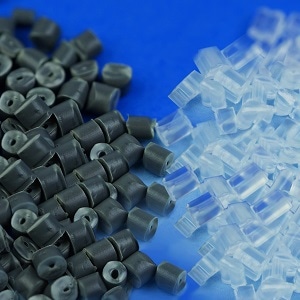Mar 20 2019
PureCycle Technologies has partnered with Milliken & Company and Nestlé S.A. as it moves forward with plans to open its first plant to restore used polypropylene (PP) plastic to 'virgin-like' quality with a revolutionary recycling method.

Solving End-of-Life Challenge Together
- PureCycle’s patented recycling process, developed and licensed by P&G, separates color, odor and other contaminants from plastic waste feedstock to transform it into virgin-like resin.
- Milliken, whose additives will play a critical role in reinvigorating recycled polypropylene, has formed an exclusive supply relationship with PureCycle to help solve the plastics end-of-life challenge.
- Nestlé will develop new packaging materials that help avoid plastic waste, in line with the company’s commitment to make 100% of its packaging recyclable or reusable by 2025.
Mike Otworth, CEO of PureCycle Technologies said, “These partners are helping us accelerate as we bring this solution to the market. This is a validation of our method, and it will help us continue to move even more quickly as we make plastics recycling reality.”
First Virgin-Like Recycled Polypropylene
Bringing both consumer market knowledge and technical expertise, Milliken and Nestlé help PureCycle work towards delivering the world’s first virgin-like recycled polypropylene.
“The use of Milliken’s additives will help to ensure that PureCycle’s Ultra Pure Recycled Polypropylene (UPRP) is of the highest quality and adds the maximum value to brand owners and consumers. We believe that this partnership will further differentiate PureCycle as both a leading reclaimer and producer of polypropylene,” continues Otworth.
Halsey Cook, president and CEO of Milliken & Company said, “Milliken understands that creating a sustainable future requires meaningful collaboration with other industry pioneers,”
“We believe PureCycle’s technology combined with Milliken’s leading plastic additives provide a transformative opportunity to elevate the viability of recycled polypropylene and help solve the plastics end-of-life challenge.”
With technology licensed from P&G, PureCycle is in the midst of building the first plant in Lawrence County, Ohio, that will recycle 119 million pounds of polypropylene, producing over 105 million pounds per year starting in 2021. The momentum created by these new relationships is enabling PureCycle to open the plant’s feedstock evaluation unit, which processes multiple vatiations of feedstock (waste polypropylene) to optimize plant 1 and subsequent plants.
Recycling and Reintegrating Polypropylene Upstream
Today, about 20 percent of polyethylene terephthalate (PET), which is commonly used to make plastic bottles and other consumer goods, is recycled. By contrast, less than 1 percent of polypropylene plastic is currently recycled. PureCycle is the first company to soley focus on recycling and reintegrating polypropylene upstream to highly sensitive consumer product applications, which are used in:
- Food and beverage packaging
- Consumer good packaging
- Automobile interiors
- Electronics
- Home furnishings, and
- Many other products
PureCycle Technologies will make high-quality, recycled PP widely available for purchase across industries. This technology demonstrates P&G's commitment to sustainability and helps in achieving P&G's 2020 recycling goals –
- Doubling the use of recycled resin in plastic packaging and
- Ensuring 90 percent of product packaging is either recyclable or programs are in place to create the ability to recycle it
PureCycle’s technology supports P&G's vision of using 100 percent recycled or renewable materials and having zero consumer waste go to landfills.
“Our approach to innovation not only includes products and packaging, but technologies that allow us and others to have a positive impact on our environment. This technology has the capacity to revolutionize the plastics recycling industry by enabling P&G and companies around the world to tap into sources of recycled plastics that deliver nearly identical performance and properties as virgin materials in a broad range of applications,” said Kathy Fish, Chief Research, Development and Innovation Officer, Procter & Gamble.